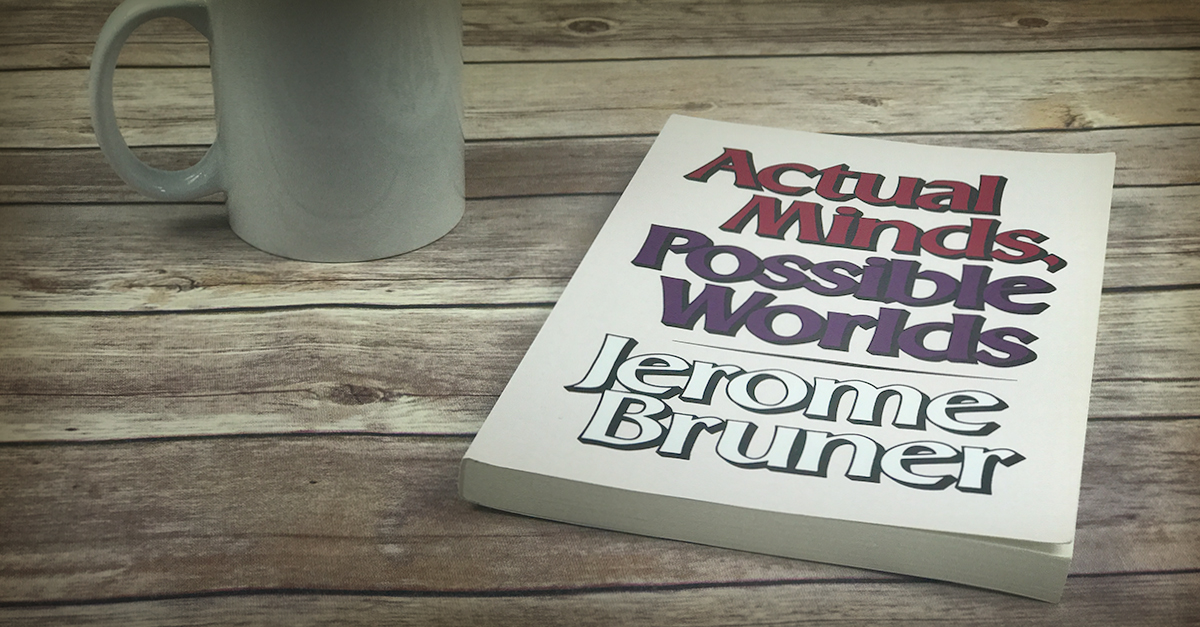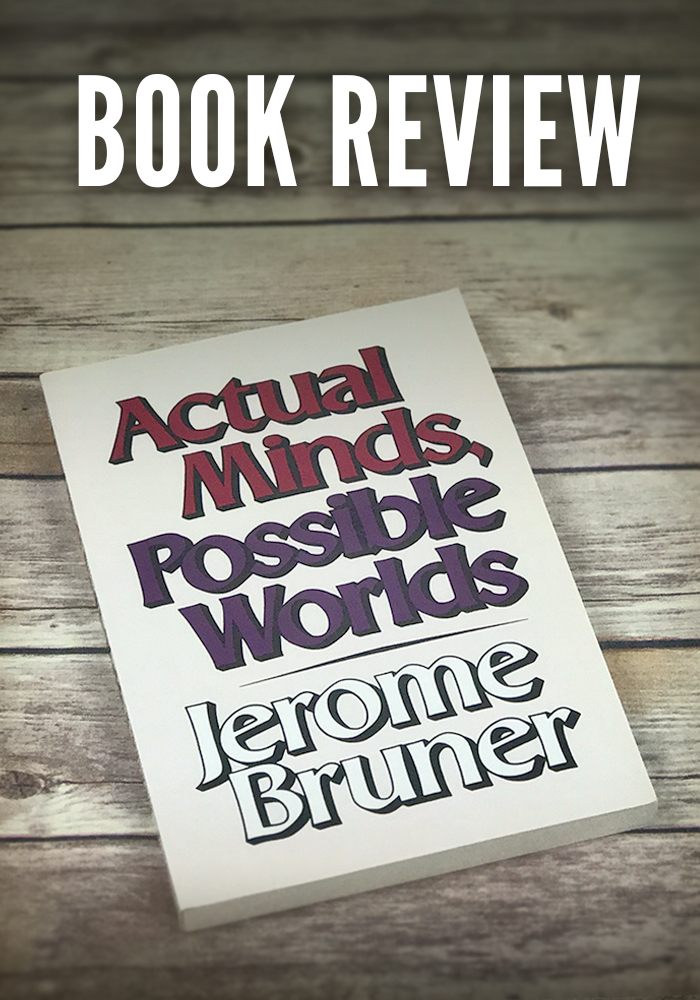Actual Minds, Possible Worlds [Book Review]

The German philosopher Ludwig Wittgenstein famously declared: “The limits of my language mean the limits of my world.” Wittgenstein’s insight is that thinking is dependent on language.
Think about how an infant’s world expands as she learns to communicate, and how the young child’s world expands even more as her vocabulary rapidly expands. (Notice that I just used words to help you imagine a situation that helped clarify a thought.) As another illustration: try to remember a time when you said “I never thought about it like that before” – chances are that it was the words someone else used that helped you to reimagine a situation.
Actual Minds, Possible Worlds by Jerome Bruner
In his book Actual Minds, Possible Worlds, the acclaimed social theorist, psychologist, and educator Jerome Bruner explores the power of literature as a pathway to this important ability to imagine new possibilities. Bruner asks us to recognize that the artist, whether the painter or novelist, “creates possible worlds” that we, the viewer or reader, can inhabit.” (49). Bruner says that the purpose of the humanities is to cultivate hypotheses about our world which can lead to new ideas, whether a new scientific theory or new business or even a new political order as seen in the founding of America.
One reason it is so important to read fiction and engage with art is because doing so helps us “sense the alternativeness of human possibility” (53). Bruner points out that we “account for our own actions and for the human events that occur around us principally in terms of narrative, story, drama” (69). Given that story is so engrained to our we make sense of our lives and our world, learning how to be good readers of good stories is central to our ability to unlocking meaningful ways of envisioning ourselves in our world. Bruner reflects on reading Shakespeare’s Othello. He writes that reading the play “joined me to the possible worlds that provide the landscape for thinking about the human condition as it exists in the culture in which I live” (128). In other words, the play is “an invitation to reflection” that allows us to deepen our sense of “the complexities that can occur in narratives of human action” (128).
Toward the end of Bruner’s book he writes: “The language of education is the language of culture creating, not of knowledge consuming or knowledge acquisition alone” (133). If there is one takeaway that Bruner wants us to have from his book, I think it’s this: fiction is an essential aspect of education because it helps us creatively tackle the complex situations of life and gives us the ability to harness language in powerful ways. As the poet Percy Bysshe Shelley once argued, “Poets are the unacknowledged legislators of the world.”
Further Reading
To read more about the importance of reading in education, check out my series on parental engagement and reading.
